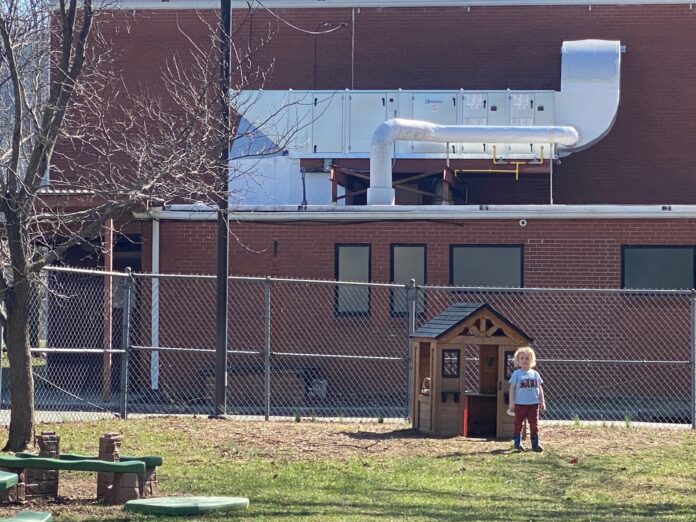Across Wake County in December, parents — myself included — scrambled to find transportation and care for children who were sent home from at least eight schools over two days that let out early for a lack of heat.
No heat … for our kids?
Understandably exasperated, parents and community members pointed fingers in many directions: the school board, the county commissioners, principals. But to place the blame on local decision-makers is to assume that Wake County is the only district facing these issues, which is far from the truth.
The 2020-21 Five-Year K-12 Facility Needs Report by the NC Department of Public Instruction, which is based on survey responses from the state’s 115 school districts, identified nearly $12.8 billion dollars in renovation needs across the state. Plumbing, HVAC, and electrical needs account for almost 25%, or $1.4 billion, of all reported renovation needs. As schools are not immune to inflation, we can safely assume these figures underestimate the costs of needed renovations to make schools function appropriately for our kids.
Districts all over North Carolina are facing similar issues. Several schools in Wilson County and Mecklenburg County also had no heat on in early December. Page High School, Madison Elementary, Monticello Brown Summit, and Jackson Middle in Guilford County all had remote learning days in December because of a lack of heat. And remember in August and September (and last August and September, and the August and September before that), when some of these same districts and others dealt with a lack of air conditioning in several buildings? And some, like Alamance County, navigated mold issues?
As of August, about half of the HVAC tech positions remained open in Wake County Public Schools, a trend that has been going on for years in districts with growth-fueled construction, where the low pay of these district positions cannot compete with what private companies can pay. Also, when emergency repairs must be contracted out to private companies, that means even less money is available for routine maintenance, repairs, and employee pay.
In North Carolina, the state is responsible for the majority of public school funding. However, the burden of school construction costs typically falls on individual local school districts. This has been a challenge for districts statewide. Large counties struggle due to rapid growth, while smaller counties face budget constraints and a smaller tax base.
All districts are dealing with increasing costs for school personnel, which increasingly falls to counties to fund as opposed to the state. The North Carolina County Commissioners Association delegates recently voted on legislative priorities for the upcoming session, naming school employee pay, and other recruitment and retention strategies, as their No. 1 issue, and funding for counties with limited resources for construction of critical facilities including schools as No. 5.
Our last statewide bond that included money for public school facilities was nearly 30 years ago in 1996.
This is not a Wake County specific issue, nor is it new. That doesn’t make it any less unconscionable, and it provides no comfort to kids trying to learn with chattering teeth or parents who have to leave work or worry about kids being home alone when school gets out early for HVAC issues.
Parents and taxpayers across North Carolina, our kids could have nice things — or at least very basic things like heat, food, and teachers — when they come to school each morning. My hunch is that there are a lot of legislators who truly do want to do the right thing and who understand that this issue will only get more expensive if they continue to put off the necessary investments.
Let them hear from you. They need to hear first-hand stories from parents and educators about your local school and how these closures have affected your families. Tell them that it is long past time to repair our schools, invest in our school systems’ workforce, and ensure that every child has the opportunity to learn in a safe and warm environment. Anything less is unacceptable.
